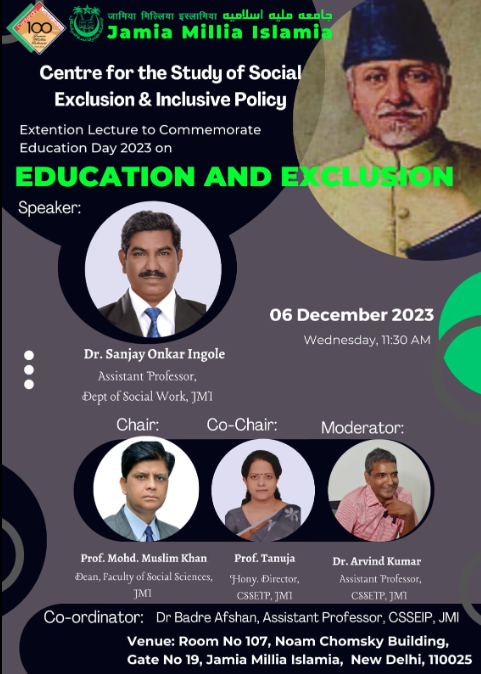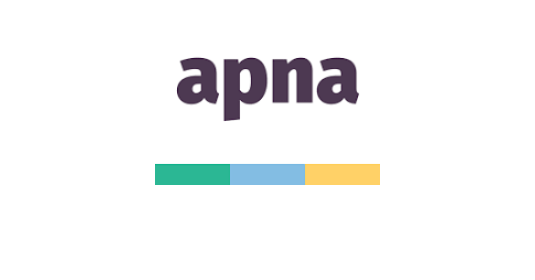The Centre for the Study of Social Exclusion and Inclusive Policy (CSSEIP), Jamia Millia Islamia (JMI) organised an extension lecture by Dr Sanjay Omkar Ingole, Assistant Professor,
Department of Social Work, JMI, on ‘Education and Exclusion’ to commemorate the National Education Day 2023, on 6 th December 2023 at Room No. 107, Noam Chomsky
Building, JMI.
Prof. Mohd Muslim Khan, Dean, Faculty of Social Sciences, JMI, graced the occasion by chairing the session. This session was co-chaired by Prof. Tanuja, Hony. Director, CSSEIP, JMI. At the outset welcome address was
given by Dr Badre Afshan, Assistant Professor, CSSEIP. Dr Arvind Kumar, Assistant Professor, CSSEIP, moderated the session. This lecture was attended by students, scholars and faculty from across the university.
The program started with the presentation of a token of appreciation by Prof. Tanuja, Hony. Director, CSSEIP, JMI.
The speaker highlighted the significance of the education in the
overall personality development of human beings. Education is widely regarded as the cornerstone of personal and societal development, offering individuals the tools to expand
their knowledge, enhance critical thinking skills, and contribute meaningfully to society.However, the stark reality is that not everyone has equal access to quality education. Across the globe, countless individuals face barriers that exclude them from the benefits of learning,
perpetuating cycles of disadvantage and inequality. One of the primary factors contributing to
educational exclusion is socio-economic status. Families with limited financial resources
often struggle to provide their children with adequate educational opportunities. The cost of
tuition, books, and other educational materials becomes a formidable barrier, creating a divide between those who can afford quality education and those who cannot. Limited resources, inadequate infrastructure, and discriminatory practices further exacerbate the challenges faced by individuals within marginalised communities, perpetuating a cycle of
generational disadvantage. He emphasized on the fact that education should be made accessible to all irrespective of caste, class, religion, region, gender, disability etc.
Dean, Faculty of Social Sciences, JMI, Prof. Mohd Muslim Khan highlighted the problems of exclusion of women in acquiring education in Indian society. By tracing the historical roots of exclusion of women from getting education, he emphasized on the pressing need for women’s education. In many societies, girls and women face systemic barriers that hinder their access to education. Discriminatory cultural norms, early marriages, and lack of infrastructure tailored to the needs of female students contribute to a significant gender gap in
educational attainment. Addressing educational exclusion requires a concerted effort from governments, communities, and educational institutions worldwide. It necessitates a
commitment to dismantling systemic barriers and fostering inclusive environments that cater to the diverse needs of learners. By promoting policies that prioritize equal access, investing in infrastructure, and embracing innovative teaching methods, societies can break down the
walls of exclusion and ensure that education becomes a universal right rather than a privilege.


.jpg)